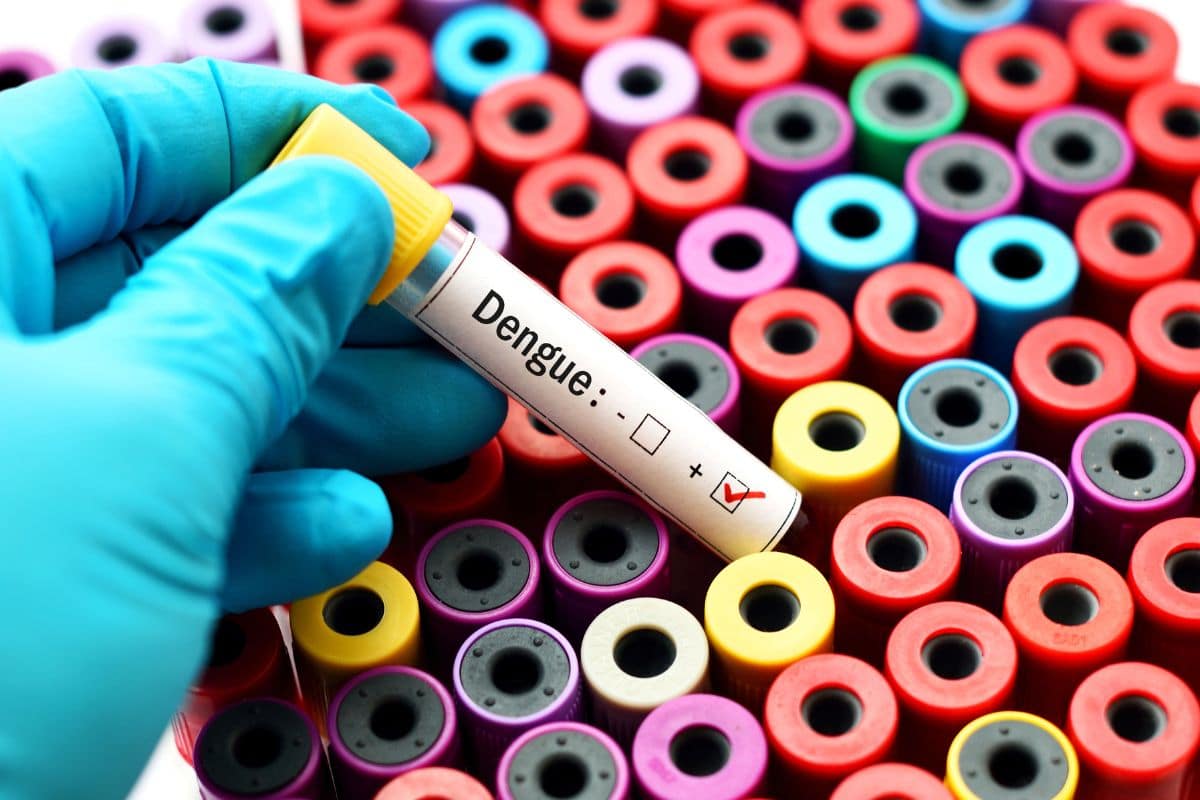
Mosquitoes are attracted to the smell of people infected with dengue or Zika virus. But scientists are now putting a stop to that with a surprising remedy.
Dengue and Zika viruses depend on mosquitoes for their survival. When a healthy mosquito bites a person infected with dengue or Zika virus, the mosquito itself can become infected and then spread these viruses to new victims. Researchers have now discovered that dengue and Zika viruses have developed a sneaky way to accelerate that spread. And now that researchers better understand how these viruses work, they can do something about it to get rid of them.
Dengue and Zika virus
Both the dengue virus – which causes dengue fever – and the Zika virus – which can cause Zika fever, among other things – are viruses that scientists are concerned about. “The dengue virus is the most common arbovirus and has already emerged in more than 100 countries worldwide,” said researcher Gong Cheng in conversation with Scientias.nl† “Every year it causes 390 million infections, mainly in tropical and subtropical regions. 500,000 people become seriously ill and infection even kills 20,000 people.” But the Zika virus should not be underestimated either. While it’s uncommon for Zika to make you seriously ill, a recent outbreak in South America caused serious birth defects in the unborn children of infected pregnant women. “In addition, Zika virus infection can cause various neurological problems,” Cheng continues. “Think, for example, of the Guillain-Barré syndrome.” This is a disease in which the muscles in the arms, legs, and trunk weaken within days or weeks. Sometimes people can become virtually paralyzed. Both the dengue virus and the Zika virus are currently free to run as there are no drugs or treatments yet.
mosquitoes
We know that both viruses make good use of the yellow fever mosquito (Aedes aegypti) to jump from one person to another. But how exactly does this distribution work? It soon became clear to researchers that the mosquito – if given a choice – is more likely to bite a person infected with dengue or Zika virus than an uninfected person. And that is in favor of the virus. Because when a healthy mosquito bites an infected person, it can, as mentioned, get the virus itself and then spread it to new people.
Odor
A pressing question, however, is why mosquitoes are particularly targeting people infected with dengue or Zika virus. To investigate, Cheng and his team studied odor samples from infected mice and humans. And that leads to a surprising discovery. Both the infected mice and humans appear to secrete abnormally high levels of acetophenone, making them ‘nice’ to mosquitoes. This compound is also found in many fruits and some cheeses.
Freshly baked cookies
Soon it starts to dawn on the researchers. “We found that through such increased acetophenone release, the viruses attract mosquitoes,” Cheng says. When the virus invades a host, the virus engages in a battle with cells in the body over control of a key protein that regulates the makeup of the skin microbiome: RELMα. And if the virus wins, it appears to suppress RELMα expression. This causes acetophenone-producing skin bacteria to work overtime. “As a result, some bacteria multiply too much and produce more acetophenone,” explains Cheng. “Suddenly, these sick people smell as good to mosquitoes as a tray of freshly baked cookies for a group of five-year-olds.”
Smart, smarter, smartest
So it means the viruses have developed an incredibly sneaky way of attracting mosquitoes so they can spread more quickly. “This is really smart,” Cheng also says. But the researchers are smarter. Now that they have discovered that an increased release of acetophenone attracts mosquitoes, they decided to devise a way to reduce the release. Because if infected people smell less good, they are also bitten less, which in turn limits the spread of the viruses.
remedy for acne
The researchers decided to look for a way to help the cells win the tug-of-war over RELMα, keeping acetophenone levels normal. After reviewing the available literature on RELMα, Cheng wanted to test whether the drug isotretinoin (commonly used as a drug for severe acne) can suppress acetophenone production. The experiment was simple: dish infected mice isotretinoin and put them in a cage with mosquitoes. The results are encouraging. It turns out that these infected mice suddenly smelled much less pleasantly, so that they attracted fewer mosquitoes. There appeared to be no difference between these mice and other uninfected animals for the mosquitoes.
Real world
The findings are promising. Because researchers may now have discovered an effective way to slow the spread of the dengue and Zika virus. The researchers now want to look at how they can translate their results into the real world. “We plan to provide dietary isotretinoin to dengue patients,” said Cheng. “We have partnered with our Malaysian colleagues to test this strategy in dengue endemic areas. We aim to start the experiment in the second half of this year.”
Smell receptors
At the same time, they are also tackling the problem from the mosquitoes’ side. “We want to look for the specific olfactory receptors with which mosquitoes recognize acetophenone,” explains Cheng. “We then want to remove the genes that code for this from mosquito populations.” And that’s smart. Without the specific olfactory receptors, mosquitoes will no longer be able to smell acetophenone. And so they will no longer look for people infected with dengue or Zika virus.
Both approaches are promising. Because if mosquitoes no longer target infected people, this can significantly reduce the spread of the viruses. And, in the most optimistic case, this could even make the viruses disappear from the face of the earth for good.
Source material:
†Dengue and Zika viruses make infected hosts more delicious to mosquitoes– Cell Press (via EurekAlert)
Interview with Gong Cheng
Image at the top of this article: jarun011 from Getty Images (via canva.com)